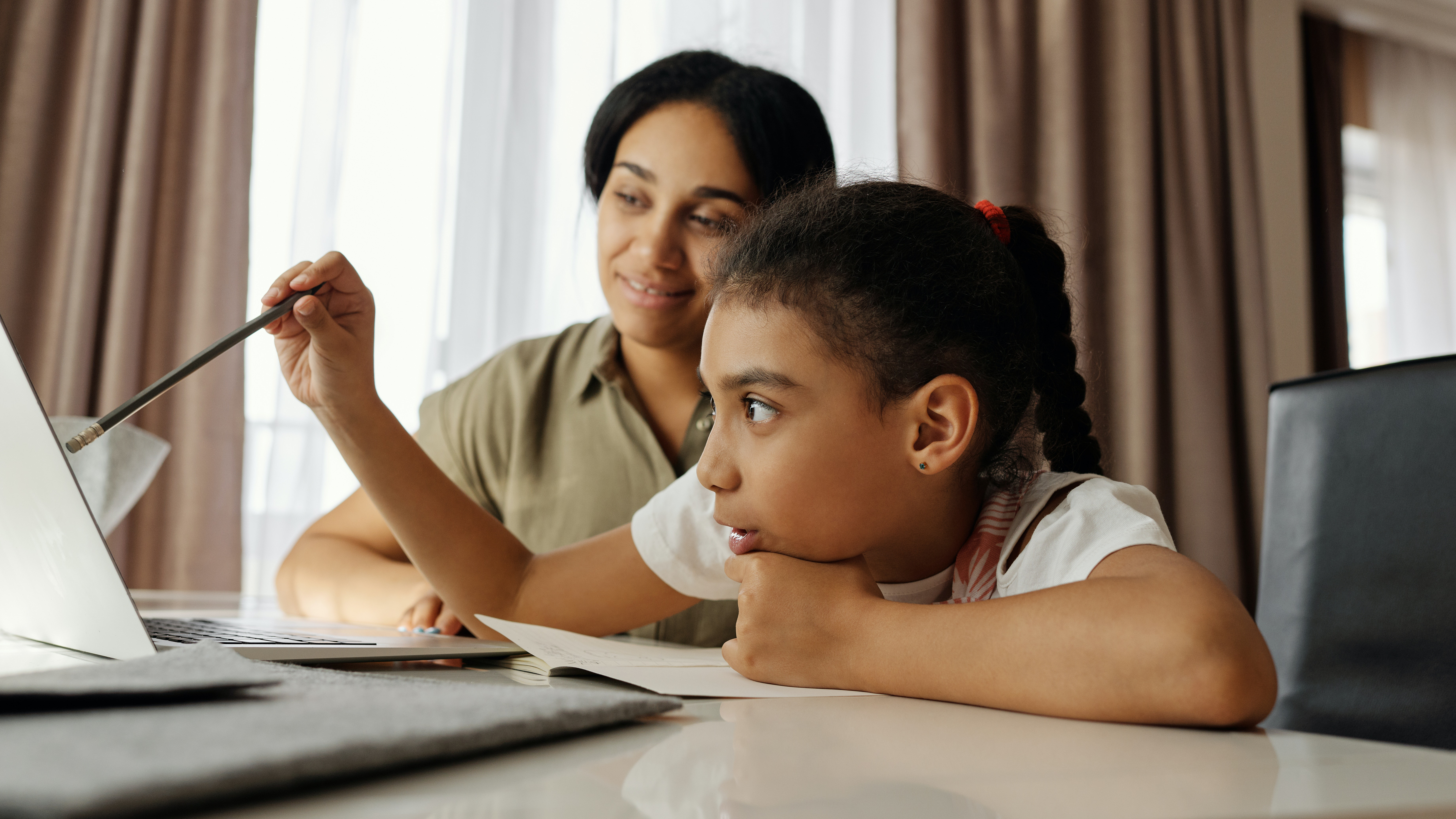We are living through an unprecedented and uncertain time, requiring each of us to navigate our way, as best we can, through a rapidly evolving global health crisis. With things changing so quickly, such uncertainty and unpredictability can take a toll on our mental and physical health.
Managing our emotions and supporting each other can be challenging at the best of times. This is why, more than ever, we all need to be doing our best to regularly pause, take a breath and be proactive in looking after ourselves and others.
![]()
We know that this isn’t always easy, and we want to support you. In this resource, you will find different practical things you can do to take care of your own wellbeing as well as supporting the children in your life, your colleagues, loved-ones and friends.
This resource takes an evidence-based approach to providing you with practical tools and techniques to help you manage uncertainty, reduce anxiety and stay connected and grounded.
Mindfulness provides us with a means of cultivating greater and more objective awareness of our own emotional landscape, the emotions of others, and of external circumstance.
In doing so, it gives us more choice in how we respond to challenges we may face and the ability to more consciously choose where we are placing our attention. We hope you find it useful.
Wherever you are in the world we sincerely hope that you and your loved ones remain safe and healthy. In the words of one of our favourite meditation teachers:
“Moment by moment we can find our way though”
— Sharon Salzberg
Fear, Anxiety & Denial
Acknowledging that feeling fearful and anxious at a time such as this is not only normal but appropriate. Given the nature of the threat we are facing, fear and anxiety are adaptive responses as they alert us to the fact that we need to be taking appropriate action to keep ourselves and others as safe and healthy as possible.
It’s also important to recognise that fear and anxiety can quickly escalate and reach a tipping point beyond which they are no longer particularly helpful and can affect us in negative ways. When the acute stress response, otherwise knowns as the ‘fight or flight’ response, kicks in we’re not as able to think clearly or make good decisions; we become more reactive and less responsive; and our thinking can quickly spiral, becoming increasingly negative and difficult to unhook from.
![]()
Warning signs
Mindfulness helps us get better at recognising and understanding our own personal signals that tell us we’re close to our tipping point. We can think of mindfulness as being like our own personal ‘fear and anxiety thermometer’ helping us get to know our own warning signs and recognise them as they’re kicking in.
Examples include:
- Irritability
- Losing patience
- A sense of urgency
- Difficulty sleeping
- Inability to focus
- Catastrophic thinking
- Ruminating
- Eating or drinking more than usual
In addition to knowing and recognising our warning signals, mindfulness gives us the opportunity to respond by taking steps to settle and soothe our nervous system which in turn enables us to think more clearly, make better decisions and respond as opposed to react.
Beware denial
It can also be tempting to turn away from and deny the seriousness of what’s happening. Denial may be particularly appealing given the significant impact that this pandemic will have on so many people financially, emotionally or physically. While temporary distractions can be useful for giving our minds a break, on the whole denial not a helpful approach. It can leave us vulnerable and exhausted as it may lead to not taking appropriate precautions and it’s difficult to sustain in the face of reality.
In essence, mindfulness helps us see things more clearly, which in turn helps us strike a balance between staying informed and making sensible choices without becoming overwhelmed.
7 Healthy Brain Breaks
Giving your brain a break when you’re nearing your tipping point can be a really helpful way of deactivating the acute stress (‘fight or flight’) response. Even short moments of reprieve are beneficial as they help reset enabling us to find the middle ground between overwhelm and denial. It’s in this place that we’re able to make better choices and are best placed to support ourselves and those around us.
We recommend trying out the following as often as you need to:
Move
Any kind of physical movement is a great way of releasing the build-up of excess energy that accompanies the acute stress (‘fight or flight’) response – take yourself for a walk or run outside; do some stretching, yoga or some other form of mindful movement; or crank some uplifting music and dance around the house for a few minutes.
![]()
Breathe
When you slow your breathing rate down the uncomfortable physical sensations of fear and anxiety start to subside. Try the following:
- Stop what you’re doing, take three long, slow deep breaths.
Impose a rhythm on your breathing so that your out-breath becomes longer than your in-breath. - Try a 4-2-6 rhythm – e.g. breathe for 4 counts, hold your breath for 2 counts, and breathe out for 6 counts.
- If that doesn’t feel comfortable, try imposing a 3-1-4 rhythm. The main thing is that your out-breath is slightly longer than your in-breath.
![]()
Ground
Connect to what is happening in this moment right now more consciously engaging your senses. Try the following:- Splash cold water on your face;
- Take a hot (or cold) shower;
- Cuddle your pet;
- Smell and/or diffuse a relaxing essential oil (e.g. lavender, geranium, ylang ylang);
- Take a moment to enjoy a cup of tea – really pay attention to the aroma and taste;
- Do one of the following short guided grounding exercises from the ‘Stress Management’ program in the Smiling Mind App:
- Counting and Blowing
- Three Things
- Roots to the Ground

Sleep
When we’re fearful and anxious it can be hard to sleep. Given the importance of sleep for our mental and physical wellbeing, including immunity, establishing good habits around sleep is particularly important at the moment.
Consider creating a pre-sleep routine by turning off news and screens at least an hour before going to bed. If you wake during the night and find you can’t sleep, rather than sit lay there and worry, try a meditation from the ‘Sleep’ program in the Smiling Mind App.
![]()
Connect
While social connection may be tricky during this time when many people are physical distancing, staying connected to others is more important than ever as we are wired to connect and seek comfort and care from others. We are fortunate to have so much technology at our fingertips enabling us to stay connected to family, friends and colleagues.
Try using video conferencing technology so that you can see each other, as we communicate best when we can see each other’s body language and facial expressions. Do your best to listen and interact as mindfully as you can with others – really pay attention to the people you’re interacting with.
![]()
Contribute
Contributing to the wellbeing of others helps shift our attention from ourselves onto what we can do for them. This helps us connect with others; gain a sense of agency, even if only in a small way; and also positively impacts on our own wellbeing.
Consider how you might help others at this difficult time. For example, could support a local business you value that is likely struggling at the moment or check up on an elderly friend or relative?
Create healthy habits
Mindfulness can help us create healthy habits to keep us and others as safe and healthy as possible. For example, washing your hands mindfully and taking care not to touch your face.
![]()
Click here for additional resources
This resource provides strategies designed to be used in a proactive way and are not designed to manage or treat significant emotional difficulties. If you need immediate help please make sure you speak with your health professional or contact lifeline on 131 114.











.jpg)



